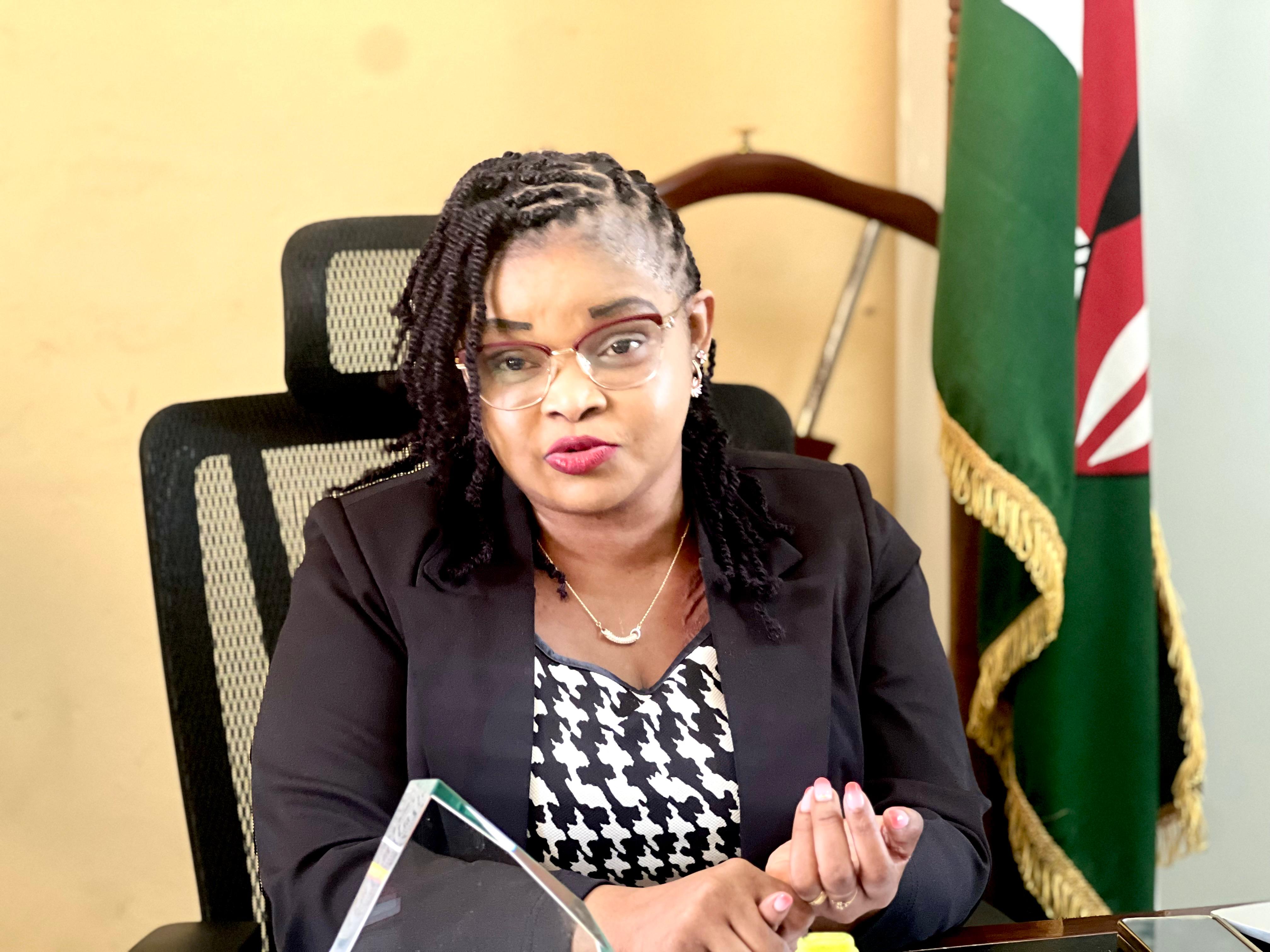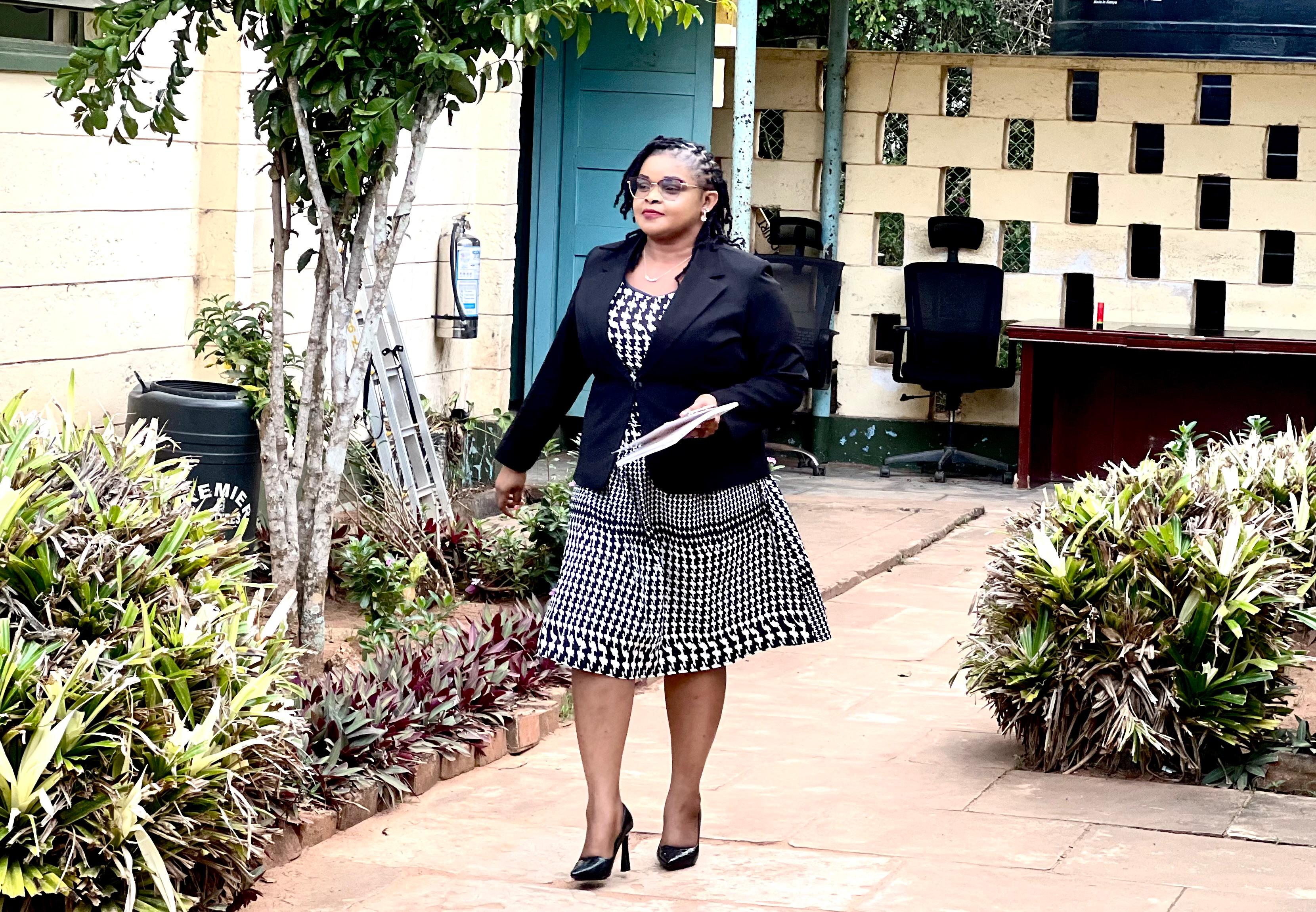

At the heart of Kwale County’s fight against sexual and gender-based violence (SGBV) is a soft-spoken yet resolute judicial officer who believes in collective solutions and grassroots engagement.
Principal Magistrate Lilian Tsuma Lewa is not just a judge; she is a changemaker on the front lines of Kwale County’s fight for justice.
She is quietly leading a judicial revolution through what she calls a “very vibrant CUC” — the Court Users' Committee.
As the head of the Kwale Law Courts, she is also the chair of the local Court Users' Committee (CUC).
It is a committee that she has transformed into a powerful force for addressing the region’s most pressing legal challenges.
The Court Users' Committee is not just a statutory forum; it’s the courtroom’s bridge to the community.
Justice Lewa said the Kwale CUC is uniquely structured, unlike other courts that have separate committees for different legal areas; she has merged all stakeholders into a single, "very vibrant" committee.
This body includes everyone from the police and the Director of Public Prosecutions (DPP) to the probation office and the Law Society of Kenya (LSK).
To better serve the community, she has also co-opted local civil society organisations (CSOs) such as Haki Yetu, International Justice Mission, and Equality Now.
The committee’s primary mission is to identify and solve problems at the grassroots level.
According to her, this approach has been key to tackling a significant issue in the county: the high prevalence of sexual and gender-based violence (SGBV).
To combat this, the CUC, under her leadership, developed a groundbreaking Standard Operating Procedure (SOP).
This document provides a clear, unified framework for how SGBV cases are handled from start to finish.
"It's a multisectoral way of approaching challenges, and at the end of the day, getting solutions that are workable for us in our unique way," Justice Lewa said.
She noted that the results are already tangible, stating that there was a decrease in registered SGBV cases, from 79 in 2023 to 73 in 2024.
While the numbers may seem small, she believes the impact is significant.
The drop is a sign that the committee is doing the right thing and that the community is beginning to understand how these cases are handled.
She said that the deep-rooted issues driving SGBV, particularly poverty and retrogressive cultural practices like early marriages.
“The reality is when a young girl gets pregnant, they have to be married off, and their education journey has stopped."
Despite the progress, the magistrate is realistic about the challenges that remain.
Cases can stall when key witnesses disappear, which she attributes to witness interference or families settling disputes outside the courtroom.
She also points to systemic issues, such as police officers being transferred without properly handing over case files.
For her, delivering justice is a collective responsibility, emphasising that it's a chain, and every link must hold strong.
"If the police drop the ball, if the DPP drops the ball, then the outcome will be nil. We need the entire chain to work together so that we can get a conviction,” she said.
For Hon. Lewa, judicial leadership goes beyond the courtroom. It means listening, convening, and acting.
Each quarter, Kwale's CUC brings together all justice actors to reflect, report, and respond.
“We are mandated to have quarterly meetings to highlight the challenges, get the challenges, and see how we can enhance efficiency,” she said.
Each sector gives a briefing, from police statistics to updates from civil society.
These forums have helped identify needs such as a lack of transport and advocate for support.
For her, the goal is clear.
“Our people, the ones we are serving, are able now to get efficient services and justice to be administered the way it’s supposed to.”
 Principal Magistrate Lilian Lewa speaking to the Star / PERPETUA ETYANG
Principal Magistrate Lilian Lewa speaking to the Star / PERPETUA ETYANGMagistrate Lewa has been recognised as a trailblazer in Kenya's justice system.
The Magistrate’s Court Users Committee (CUC) was named the best in 2023 for its innovative programs.
These initiatives focused on improving service delivery and meeting community needs.
Justice Lewa highlighted the challenge of accessibility in Kwale county.
"If you have traversed Kwale, you will realise that it is one of the biggest counties, but it has two courts," she stated.
Residents found it difficult to travel to court daily. To bridge this gap, the court launched a quarterly community outreach program.
"We came up with programs in which we can take the message to the people, and that is through the outreaches," she said.
This initiative set a new standard for other courts. "So we were a pace setter," she added.
Another key focus was decongesting prisons. Some suspects were held for extended periods without their cases moving forward.
Magistrate Lewa's court introduced flexible bond terms.
"We came up with flexible bond terms within which we ensured that these people, since they are released, they are also able to come," she added.
The court also utilised a personal bond system. A respected community leader, like a village elder, would guarantee the suspect's court attendance.
"The person who is committed to ensuring they come is someone who has a standing in society," Lewa noted.
The court ensured evidence was recorded immediately for those unable to pay cash bail.
Magistrate Lewa's efforts have earned her multiple awards.
Equality Now honored her with the Best Gender Justice Judicial Officer Award. This was for her work rehabilitating SGBV survivors.
She also received an award as a Child Champion from the International Labour Organisation (ILO).
Justice Lewa was recognised for her initiatives on child justice in Kwale County. She addressed issues like child labor and school dropouts.
The court actively participated in community sensitisation. They went to schools to speak with students and teachers.
Magistrate Lewa was also recognised for her service delivery. Her innovations were praised for being responsive to vulnerable and marginalised communities.
One of the partners, EQuality Now, has called for strengthened collaboration to tackle sexual violence in Kwale.
Equality Now’s Africa regional coordinator Judy Gitau underscored the critical role of Court Users’ Committees in improving access to justice for survivors of SGBV.
Speaking during an engagement with justice sector stakeholders, Gitau said they work with local partners, including Sauti ya Wanawake Pwani, to bridge the gap between justice systems and the community.
“The role of Sauti ya Wanawake and ourselves is to be participants within the co-chairs of the committee to ensure that we bridge the gap between the justice sector systems and the community,” she said.
She noted that high rates of violations against women and children, coupled with barriers to justice, make the CUCs vital platforms for change.
Equality Now, she added, supports capacity building for committee members, whether they are health workers, lawyers, prosecutors, or magistrates.
“We ensure that capacity is there so that at the end of the day, persons who have been denied access to justice,” Gitau said.














